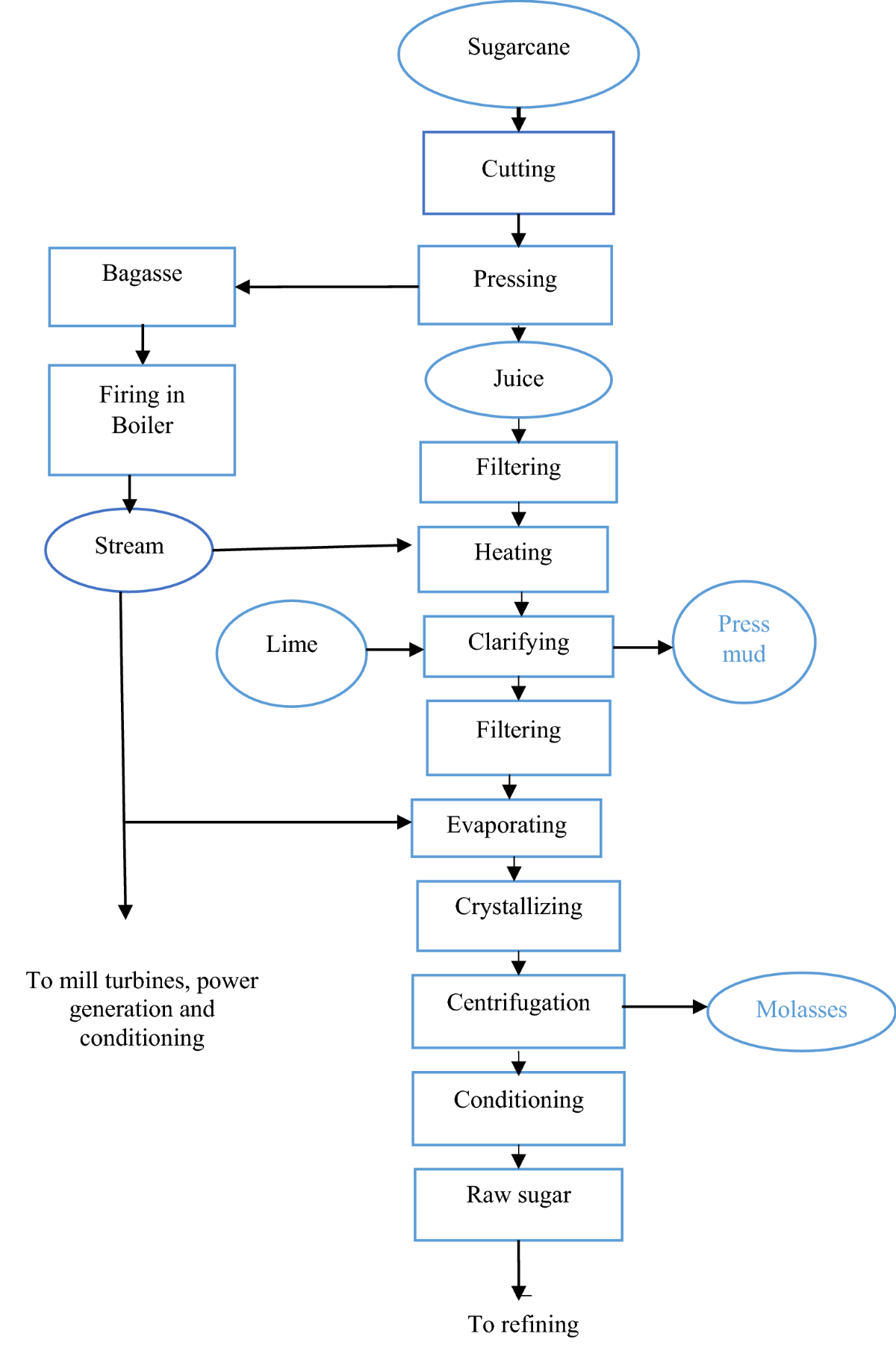Exploring Composting Options for Products From Sugarcane
Exploring Composting Options for Products From Sugarcane
Blog Article
Unlocking the Prospective of Products From Sugarcane: a Comprehensive Overview
The capacity of sugarcane expands much beyond its traditional usage for sugar manufacturing. This overview explores the multifaceted applications of sugarcane, from energy and biodegradable products to health products. By examining its trip from field to factory, it exposes just how sustainable practices can change waste into useful resources. As markets seek environmentally friendly solutions, the concern remains: exactly how can these developments improve our method to agriculture and production?

The Journey of Sugarcane: From Field to Factory
Sugarcane undergoes a fascinating transformation as it takes a trip from lush areas to bustling manufacturing facilities. In the areas, the tall, environment-friendly stalks are harvested, commonly by mechanical ways or manual work. When cut, the sugarcane is swiftly transferred to refining facilities to assure optimum quality. At the factory, the initial step includes squashing the walking cane to extract the sweet juice, which consists of sucrose. Products From Sugarcane. This juice is then filtered and made clear, removing pollutants. Following this, it goes through evaporation to concentrate the sugar content, leading to condensation. The resulting sugar crystals are divided from the remaining molasses via centrifugation. The sugar is dried out and packaged for distribution. Throughout this trip, keeping top quality and efficiency is vital, as the approaches utilized directly influence the item's last high quality. This change not just highlights the farming significance of sugarcane but additionally its substantial role in the international economic climate
Sugar and Its By-products: Greater Than Simply Sweetness
The change of sugarcane into polished sugar opens up the door to a wide array of items and applications that extend beyond simple sweetness. Sugar and its derivatives, such as molasses, brown sugar, and glucose, play critical functions in various industries, consisting of food, pharmaceuticals, and cosmetics. In the food market, these components enhance flavors, boost texture, and serve as preservatives.Molasses, a result of sugar manufacturing, is rich in minerals and vitamins, making it a beneficial ingredient in organic food and pet feed. Glucose, a straightforward sugar originated from sugarcane, serves as a considerable energy source in sports nourishment and is essential in the production of confectionery. In addition, sugar derivatives are used in fermentation procedures, adding to the manufacture of alcohols and various other microbial items. Generally, the versatility of sugar and its derivatives highlights their significance past mere sweet taste in everyday life.
Biofuels: Harnessing Power From Sugarcane

A substantial part of global biofuel production now counts on sugarcane, recognized for its high power yield and effectiveness in transforming sunlight right into biomass. This tropical crop functions as a main source for ethanol, a sustainable fuel that can change fuel in cars. Sugarcane's capability to generate even more ethanol per hectare than other feedstocks, such as corn, contributes to its boosting popularity amongst biofuel producers.The fermentation process of sugarcane juice or molasses generates ethanol, which can be combined with fossil fuels to minimize greenhouse gas exhausts. Furthermore, by making use of the recurring bagasse from sugarcane processing, power can be generated through combustion, more boosting the sustainability of biofuel production. As countries look for to minimize environment change impacts, sugarcane biofuels supply an appealing service, strengthening energy safety and promoting farming sustainability while sustaining country economic situations.
Biodegradable Plastics: The Sustainable Different
Exactly how can markets shift to more lasting techniques when faced with growing plastic pollution? One appealing solution exists in biodegradable plastics derived from sugarcane. Unlike standard petroleum-based plastics, these bioplastics use an environmentally friendly alternative that can greatly decrease environmental influence. Made from renewable sources, sugarcane-based plastics disintegrate more swiftly in numerous problems, minimizing garbage dump accumulation and aquatic debris.The production of biodegradable plastics not just addresses waste monitoring challenges yet additionally straightens with the raising customer need for sustainable products. Industries adopting these products can boost their brand image while adding to a circular economy. Furthermore, the modification to naturally degradable alternatives motivates advancement and investment in brand-new innovations, fostering a greener industry landscape.As much more firms recognize the advantages of sugarcane-derived plastics, the capacity for prevalent adoption increases, leading the method for an extra sustainable future in product packaging and item style.
Pet Feed and Fertilizers: Making Use Of Byproducts
The by-products of sugarcane processing hold significant potential for both pet nutrition and natural fertilizers. These by-products can be incorporated into animal feed, providing essential nutrients while reducing waste. In addition, they can serve as reliable organic plant food alternatives, enhancing soil health and promoting sustainable farming techniques.
Byproducts in Pet Nutrition
While sugarcane is mainly valued for its sucrose content, its byproducts play a vital duty in animal nutrition, particularly in the kind of pet feed and fertilizers. The coarse residue called bagasse, created during the removal of juice, acts as a useful source of roughage for animals. This high-fiber product improves food digestion and promotes total health in ruminants. Additionally, molasses, a byproduct of sugar refining, is rich in power and can be made use of to supplement pet diets, boosting palatability and nutritional worth. Vinasse, a additional resources fluid result from ethanol production, includes crucial nutrients and can be used as a feed additive. Generally, sugarcane by-products contribute considerably to sustainable animal nourishment methods.
Organic Fertilizer Options
Making use of sugarcane results extends beyond pet nutrition to incorporate organic fertilizer options that benefit agricultural practices. The coarse deposits, such as bagasse and filter cake, work as reliable organic plant foods, improving soil health and wellness and boosting crop yields. These materials are abundant in nutrients, consisting of potassium, nitrogen, and phosphorus, important for plant growth. When broken down, they enhance soil structure, water retention, and microbial activity, cultivating a lasting farming environment. In addition, utilizing sugarcane byproducts for fertilization decreases dependence on artificial plant foods, promoting environmentally friendly farming methods. By reusing these byproducts, farmers can add to a circular economy while optimizing their productivity and decreasing waste. This approach exemplifies innovative techniques in lasting agriculture, leveraging sugarcane's full capacity.
Wellness and Health: Nutritional Benefits of Sugarcane
Various researches highlight the dietary advantages of sugarcane, making it a useful addition to a well balanced diet regimen. Rich in crucial nutrients, sugarcane includes significant amounts of carbohydrates, minerals, and vitamins, especially vitamin Calcium, c, and potassium. These elements add to general wellness, sustaining immune feature and bone strength.Moreover, sugarcane is a natural source of anti-oxidants, which help fight oxidative tension and swelling in the body. Its high fiber material aids in digestion, advertising digestive tract health and wellness and preventing bowel irregularity. In addition, sugarcane juice has actually been linked to hydration and energy replenishment, making it a superb choice for athletes or those taking part in laborious activities.Furthermore, the glycemic index of sugarcane is relatively reduced, permitting a much more gradual launch of power, which might be helpful for people handling blood sugar level degrees. In general, including sugarcane right into one's diet regimen can provide a revitalizing and nutritious choice for health-conscious individuals.
Innovations in Sugarcane Products: Future Trends and Opportunities
What advancements lie in advance for sugarcane items as sectors look for to boost sustainability and customer charm? The future of sugarcane items is positioned for significant innovations, driven by the demand for environmentally friendly options. Advancements in bio-based product packaging, obtained from sugarcane, are gaining grip, using a sustainable substitute for traditional plastics. In addition, the expedition of sugarcane's bioactive compounds is most likely to lead to brand-new wellness supplements and practical foods, profiting from its all-natural benefits.Research right into fermentation processes might yield unique biofuels, additionally expanding sugarcane's utility. In addition, the growth of genetically customized sugarcane varieties assures raised yields and resistance to parasites, thereby supporting lasting farming methods. As customers come to be a lot more environmentally mindful, the integration of openness in sourcing and manufacturing techniques will also play a necessary function in forming the future of sugarcane products. Eventually, these innovations might redefine sugarcane's placement in worldwide markets.
Often Asked Inquiries
What Are the Environmental Impacts of Sugarcane Farming?
The environmental impacts of sugarcane farming include logging, loss of biodiversity, dirt deterioration, and water pollution - Products From Sugarcane. Furthermore, excessive pesticide and plant food usage can harm ecological communities, while monoculture practices might bring about lowered durability versus climate change

Exactly How Is Sugarcane Processed Into Different Products?
Sugarcane processing involves harvesting, crushing, and drawing out juice, which is then made clear and focused. The resulting syrup can be fermented for ethanol or taken shape for sugar, while fibers are utilized for bioenergy and other products.

Exist Any Type Of Health And Wellness Threats Linked With Sugarcane Intake?
The inquiry of wellness dangers connected with sugarcane consumption highlights problems such as extreme sugar consumption, possible allergic reactions, and gastrointestinal concerns. Moderation is crucial to reduce these dangers while enjoying its nutritional benefits.
What Are the Economic Benefits of Sugarcane Farming?
The economic advantages of sugarcane visit the website growing consist of task development, enhanced farming performance, and payments to neighborhood economies. Additionally, it sustains sustainable energy manufacturing and uses different byproducts that can improve success within varied markets.
Exactly How Does Sugarcane Compare to Various Other Renewable Resources?
Sugarcane, as a renewable energy, shows greater performance in biomass production contrasted to lots of alternatives. Its versatility permits various by-products, contributing notably to sustainable techniques, financial growth, and lowering reliance on nonrenewable fuel sources. Sugar, an easy sugar acquired from sugarcane, offers as a considerable energy source in sports nourishment and is necessary in the manufacturing of confectionery. Sugarcane's capability to generate more ethanol per hectare than other feedstocks, such as corn, adds to its enhancing popularity among biofuel producers.The fermentation process of sugarcane juice or molasses creates ethanol, which can be mixed with fossil gas to minimize greenhouse gas exhausts. Additionally, sugarcane juice has actually been linked to hydration and energy replenishment, making it a superb option for athletes or those involving in laborious activities.Furthermore, the glycemic index of sugarcane is fairly reduced, permitting for a much more steady launch of energy, which might be useful for individuals managing blood sugar levels. In addition, the expedition of sugarcane's bioactive compounds is likely to lead to brand-new health and wellness supplements and functional foods, capitalizing on its natural benefits.Research into fermentation procedures might produce unique biofuels, better branching out sugarcane's energy. The question of health risks connected with sugarcane intake highlights worries sites such as excessive sugar consumption, potential allergic reactions, and gastrointestinal problems.
Report this page